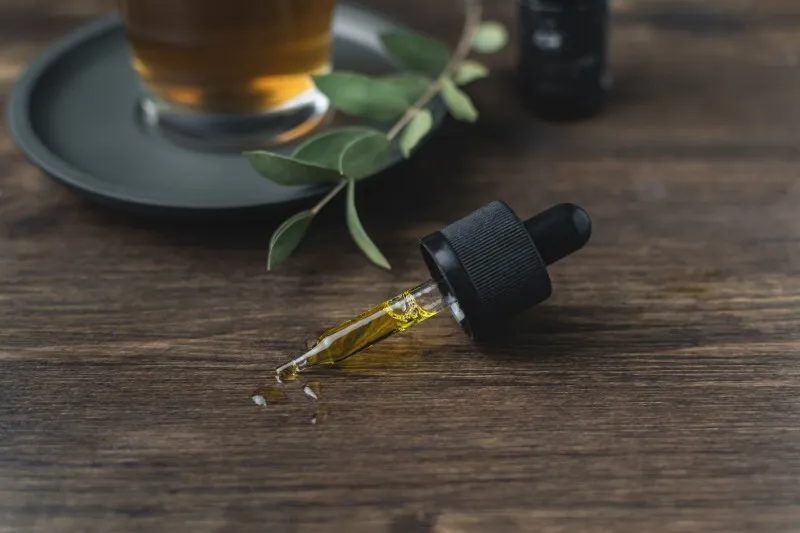
CBD is in high demand for health and wellness due to its therapeutic effects.
The industry is expected to generate revenues of $22.05 billion by 2030.
If you are considering starting a CBD business, you face a minefield of state and federal restrictions.
A lawyer experienced with intellectual property laws can help you protect your brand despite the challenges.
What is a Trademark?
A trademark is any word, phrase, symbol, or design that identifies your goods or services in the marketplace and distinguishes you from competitors.
Trademarks identify and differentiate a business’s products and services from their competitors. In addition, trademarks help customers identify the source of the goods or services.
A trademark often represents the business’s goodwill or reputation with the public.
To protect your trademark under the U.S. Trademark Act, you must use your distinct mark in commerce.
Registration is not required. However, registering prevents others from registering the trademark without permission.
Additionally, registration allows you to stop others from using a similar trademark for related goods or services. We often help business owners deal with conflicts about priority and using a trademark.
What Is a CBD Trademark?
Ordinarily, any word, design, slogan, shape, color, sound, or scent that identifies a product can be trademarked.
For a CBD manufacturer, things like packaging, logos, and brand names might come to mind. However, both the federal and state trademark offices restrict registration to marks lawfully used in commerce.
To qualify for registration under the U.S. Trademark Act, your use of a mark in commerce must be lawful.
Before the Patent and Trademark Office (USPTO) will register a CBD trademark, the goods to which the mark is applied, and the mark itself, must comply with all federal laws.
Are There Federal CBD Trademarks?
For CBD to qualify for a federal trademark, the CBD’s source must be lawful. CBD is an abbreviation for cannabidiol, one of the hundreds of cannabinoid chemicals in the Cannabis sativa plant.
The USPTO may reject a trademark application for CBD without proof that it was sourced from a licensed grower under an approved hemp pilot plan.
The cannabis plant, previously referred to as marijuana, has been illegal to grow in the United States since the 1970s under the Controlled Substances Act (CSA).
However, with the 2018 Farm Bill, the legislature recognized the agricultural value of the cannabis plant.
They removed plants with a low concentration of THC (delta-9-tetrahydrocannabinol, the cannabidiol that gets you high) from the definition of marijuana.
If grown under an approved state pilot plan, plants with a THC concentration of less than 0.3% are considered hemp.
The Florida Department of Agriculture and Consumer Services (FDACS) began issuing licenses to hemp growers on July 1, 2019.
Therefore, legal CBD comes from a plant grown on a farm with hemp cultivation permits from FDACS.
You can register a trademark for non-consumable CBD products like non-medicated lotions or soaps from legal CBD sources.
You must include the following (truthful) statement on your registration application to comply with the CSA: “solely derived from hemp with a delta-9 tetrahydrocannabinol (THC) concentration of not more than 0.3% on a dry weight basis.”
Can I Trademark Consumable CBD Products?
The USPTO will reject trademark applications for consumable CBD because it does not comply with all federal laws.
The Food, Drug, and Cosmetic Act prohibits a business from using a drug in food or dietary supplements if it is under substantial clinical investigation.
The U.S. Food and Drug Administration (FDA) is investigating consumable forms of CBD, making it unlawful to use in food without FDA approval.
Therefore, consumable CBD products, such as gummies or extracts marketed as dietary supplements, cannot have a registered trademark.
Registering Trademarks for CBD
To register a trademark, you first must choose a trademark and use it in commerce. Then, you must pass the trademark office’s screening and clearance tests.
Your proposed mark must be distinct and available. Your application must show that you lawfully use the mark. For CBD companies, this means you must legally source your CBD.
You should include a statement on your trademark application certifying that your CBD contains less than 0.3% THC.
Your attorney will help you complete your application and include the relevant information to get your trademark approved.
BrewerLong: Answering, Can CBD Be Trademarked?
As an entrepreneur, you know the challenges of operating within a complex regulatory scheme.
Fortunately, Florida has implemented a hemp pilot program under the 2018 Farm Act, which legalizes CBD sourced from cannabis plants with a concentration of less than 0.3% THC.
If you want to trademark your legal CBD product, an attorney at BrewerLong will help you build and protect your brand.
We promise each client personal attention and meaningful communication tailored to meet your legal needs.
Call us today or contact us online.
This blog post is provided on an “as is” and “as available” basis as of the date of publication. We disclaim any duty to update or correct any information contained in this blog post, including errors, even if we are notified about them. To the fullest extent permitted by law, we disclaim all representations or warranties of any kind, express or implied with respect to the information contained in this blog post, including, but not limited to, warranties of merchantability, fitness for a particular purpose, title, non-infringement, accuracy, completeness, and timeliness. We will not be liable for damages of any kind arising from or in connection with your use of or reliance on this blog post, including, but not limited to, direct, indirect, incidental, consequential, and punitive damages. You agree to use this blog post at your own risk. Regarding your particular circumstances, we recommend that you consult your own legal counsel–hopefully, BrewerLong.


